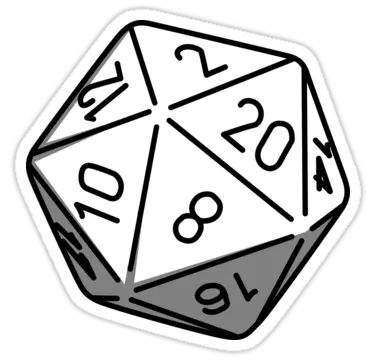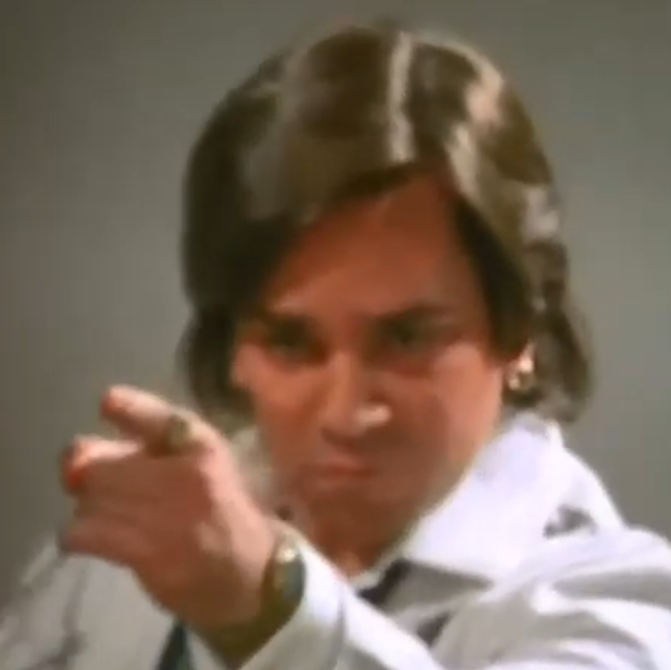Have you really enjoyed reading a work that qualifies and want to recommend it to others? This is the prime spot to help people out with those recommendations.
The way this thread works is that this thread will contain one top level comment for each Bingo square. In order to preserve the organization and readability of this post, please limit recommendations to only replies on those top-level comments. We will be removing comments that don’t follow this rule for for this specific post.
You can scroll through the thread or use the links above if your reader supports comment linking directly.
Reminder, Please DO NOT make comments that are not replies to a prepopulated top-level comment. Your comment will just be removed without any additional info.
Removed by mod
New Release:
New for 2024/2025 (no reprints or new editions). First translations into your language of choice are allowed. HARD MODE: This is the first work you’ve read by this author.
The gathering, by C.J. Tudor
Nuclear war: a scenario, by Annie Jacobsen
Plays With Words:
Written in a stylistically unconventional way. HARD MODE: Fits the definition of Experimental Literature.
- Flowers for Algernon by Daniel Keyes
- Infinite Jest by David Foster Wallace
- Ella Minnow Pea: A Progressively Lipogrammatic Epistolary Fable by Mark Dunn
- Catch-22 by Joseph Heller
- Finnegans Wake by James Joyce
- House of Leaves by Mark Z. Danielewski
- A Clockwork Orange by Anthony Burgess
Older Than You Are
Published before your birthdate. HARD MODE: Published before 1924.
- Gravity’s Rainbow by Thomas Pynchon
- Ulysses by James Joyce
This category is a bit tougher to recommend because the qualification depends on your age, but these are all over 100 years old and I’ve enjoyed all of them.
- Lud-in-the-Mist by Hope Mirrlees
- Gulliver’s Travels by Jonathan Swift
- King Solomon’s Mines by H. Rider Haggard
- The Wonderful Wizard of Oz by L. Frank Baum
- Alice’s Adventures in Wonderland by Lewis Carroll
- A Connecticut Yankee in King Arthur’s Court by Mark Twain
- A Princess of Mars by Edgar Rice Burroughs
Now a Major Motion Picture:
The work has been adapted into a show or single episode, movie, play, audio drama, or other format. HARD MODE: The adaptation is regarded as better than the original work.
The Expanse series by James S A Corey
The Three Body Problem by Cixin Liu
- Shadow and Bone by Leigh Bardugo
- The Hellbound Heart by Clive Barker
- The Leftovers by Tom Perrotta
- Big Fish by Daniel Wallace
- Nothing Lasts Forever by Roderick Thorp
- American Gods by Neil Gaiman
- All Systems Red by Martha Wells
- Storm Front by Jim Butcher
ALT - Same Author, New Work
An author you’ve read before, but a series (or standalone) you haven’t. HARD MODE: Give an author you didn’t like a second chance.
Disability Representation:
A main character has or gains a disability to which they must adapt. This disability must be grounded in reality: if a 4,000 year old Prince of the Shokan lost an arm, that would count; if he became a werewolf, it would not. HARD MODE: The piece is at least partially from their perspective.
- Feral Creatures by Kira Jane Buxton
- How to Train Your Dragon by Cressida Cowell
- Flowers for Algernon by Daniel Keyes
Mashup:
A combination of two or more genres or non-fiction topics. HARD MODE: Unusual combo, like fantasy thriller.
Have read and enjoyed:
- Iron Truth by S.A. Tholin - space opera with horror elements
- Leech by Hiron Ennes - gothic sci-fantasy horror, set in some kind of post-apocalypse
- The Witness for the Dead by Katherine Addison - fantasy of manners mystery
- The Mister Trophy by Frank Tuttle - fantasy mystery
- The Monsters We Defy by Leslye Penelope - historical fantasy
- Ghosts in the Snow by Tamara Siler Jones - fantasy mystery
- Priest of Bones by Peter McLean - fantasy organized crime
- When Gravity Fails by George Alec Effinger - cyberpunk mystery
What’s Yours Is Mine:
Theft, piracy, fraud, or espionage is a major topic or plot point. HARD MODE: No MacGuffins.
The Recognitions by William Gaddis
Mistborn by Brandon Sanderson
- The Thief by Megan Whalen Turner
- The Lies of Locke Lamora by Scott Lynch
- The Palace Job by Patrick Weekes
- The Redemption of Althalus by Leigh Eddings & David Eddings
- Tinker, Tailor, Soldier, Spy by John le Carré
- Catch Me If You Can: The True Story of a Real Fake by Frank W. Abagnale with Stan Redding
- On Stranger Tides by Tim Powers
Debut Work:
An author’s first work. HARD MODE: The author is widely regarded as having a profound impact on the genre/topic.
The Mysterious Affair at Styles by Agatha Christie, with the caveat that her early work is a bit racist. Styles, for example, I recall having an n-word casually dropped into a conversation, along with a couple of antisemitic remarks. If you don’t mind reading around that, however, it’s a nice little Poirot case.
I had a similar experience when I was working through some of the early “The Shadow” pulps and was surprised a couple times at just how blatant the racism was.
- Interview with the Vampire by Anne Rice
- Carrie by Stephen King
- The Hundred Thousand Kingdoms by N.K. Jemisin
- Fear and Loathing in Las Vegas by Hunter S. Thompson
- To Kill a Mockingbird by Harper Lee
- Jonathan Strange & Mr Norrell by Susanna Clarke
- Casino Royale by Ian Fleming
- Neuromancer by William Gibson
Award Winner:
Has won a significant literature award. HARD MODE: More than one award.
I would love some suggestions for awards to look up, that you’d consider big for your country or preferred genre. I’ve looked up lists of awards, but they tend to be pretty US-focused, and it’s hard to tell what’s actually significant.
I’m familiar with the Hugos (SFF), Nebula (SFF), Bram Stoker (horror), Edgars (mystery), Pulitzer (lit), Booker (lit), and Newbery (kids).
- Dreamsnake by Vonda N. McIntyre
- Ancillary Justice by Ann Leckie
- Babel: An Arcane History by R.F. Kuang
- A Master of Djinn by P. Djèlí Clark
- The Left Hand of Darkness by Ursula K. Le Guin
- Fahrenheit 451 by Ray Bradbury
ALT - She Blinded Me With Science
The author has a background and degree in a hard science. HARD MODE: More than one post graduate degree.
- The Postman by David Brin
- Contact by Carl Sagan
- The Boat of a Million Years by Poul Anderson
- Jurassic Park by Michael Crichton
- Dreamsnake by Vonda N. McIntyre
Bookception:
Features a book-related aspect. HARD MODE: Something other than a book, like an author or library.
- The Book Eaters by Sunyi Dean
- The Golden Enclaves by Naomi Novik
- Fahrenheit 451 by Ray Bradbury
- The Hitchhiker’s Guide to the Galaxy by Douglas Adams
- The Neverending Story by Michael Ende
Family Drama:
Family is important, but sometimes it’s also the cause of problems. Family dynamics are fundamental to the narrative. HARD MODE: Involves three or more generations of family members.
Pachinko by Min Jin Lee
- Charlie and the Chocolate Factory by Roald Dahl
- The Sandman Graphic Novels by Neil Gaiman
- The Library at Mount Char by Scott Hawkins
- The Ocean at the End of the Lane by Neil Gaiman
“100 Years of Solitude” Gabriel García Márquez (this works for HARD MODE)
It’s About Time:
The passage or manipulation of time is a major theme or plot driver. HARD MODE: Backward in time, not forward.
Won’t fit the hard mode, but Charles Sheffield’s Tomorrow and Tomorrow was an interesting read. The first third wasn’t really my thing, but after that the book goes way far into the future.
- The Curious Case of Benjamin Button by F. Scott Fitzgerald
- The Time Machine by H.G. Wells
- This Is How You Lose the Time War by Max Gladstone, Amal El-Mohtar
- 11/22/63 by Stephen King
- The Man Who Folded Himself by David Gerrold


